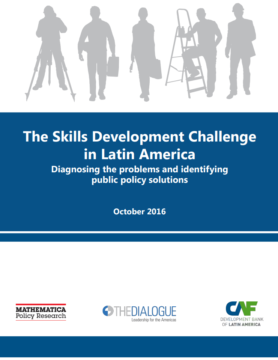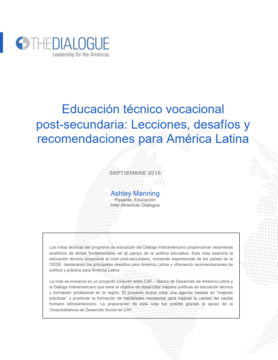
The Skills Development Challenge in Latin America
The lack of adequate skills represents a bottleneck to productivity growth and to the ability of workers to obtain gainful employment in Latin America.
The lack of adequate skills represents a bottleneck to productivity growth and to the ability of workers to obtain gainful employment in Latin America.
Online competency-based education (OCBE) has emerged as a viable option to help reduce the skills gap in the Americas
Apprenticeships are part of technical and vocational education (TVE) and combine formal education with learning in the workplace.
Post-secondary technical vocational education is primarily directed towards youth that have recently finished high school, preparing them directly for the labor market.
The lack of adequate skills represents a bottleneck to productivity growth and to the ability of workers to obtain gainful employment in Latin America.
Recognizing the growing challenges Latin American countries face in skills development, the dialogue organized a seminar on technical education and professional training.
This report looks at English language instruction at the technical and professional education levels in six Latin American countries: Chile, Colombia, Costa Rica, Ecuador, Peru, and Uruguay.
On August 31st, the Education Program at the Inter-American Dialogue presented its new report about English language instruction at the technical and professional education authored by Sarah Stanton and published with the support of Pearson.



 Video
Video


 Video
Video